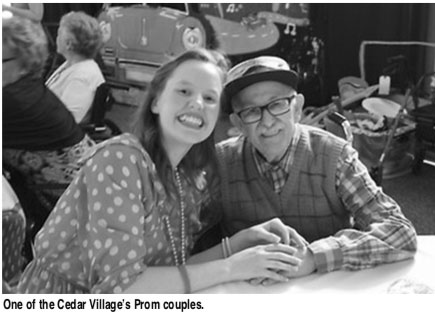(New York Jewish Week) — “Humanity’s most true history is written only in blood. How Jews died, the entire world already knows.” So says Broadway star Steven Skybell at the beginning of “Amid Falling Walls,” a new musical from the National Yiddish Theater Folksbiene. “But how Jews resisted against and fought the murderers, we know far, far less.”
The musical, which opened Monday at the Museum of Jewish Heritage and runs through Dec. 10, aims to portray “the indomitable Jewish spirit during the Holocaust through Yiddish song.” Drawing upon the poetry, diaries and songs created by Jews who were confined to ghettos during the Nazi era, the musical weaves together 30 vignettes that detail everyday life in the Jewish ghettos of Lodz, Warsaw, Vilna and elsewhere.
Created by Yiddishist father-son duo Zalmen Mlotek and Avram Mlotek and drawing upon works created in the 1940s, “Amid Falling Walls” has been two years in the making. But after Hamas’ attack on Israel Oct. 7, given the violence, the ensuing war and rising antisemitism across the globe, the production’s messaging has become all the more relevant.
“Obviously, we could never have anticipated such a horrific episode transpiring,” Avram Mlotek, who is also a rabbi, a cantor and a social worker, told the New York Jewish Week. “It just puts the work into a whole different kind of perspective; the idea that the arts and music and song can be these means of spiritual resistance and of nourishing the soul.”
In one scene, a child asks her mother why Jews are barred from certain streets, parks and areas of town. “The mother gently responds, saying, ‘the Jew haters wish that we don’t have any humanity,’” said Mlotek, 36. “The mere idea that an 11-year-old was able to put that into words is already boggling for me, but of course takes on a special kind of light given the undermining of the Jewish people’s humanity in the wake of this assault.
“It’s a reminder that that type of undermining hatred is unfortunately nothing new,” he added. “Every moment is unique, and every human life is infinitely precious, but we have spiritual tools in our people’s toolkit to face these types of traumas. Song and music are at the forefront of that.”
Mlotek, who is credited as a writer and curator, pulled many of the songs and poems that appear in the show from the anthology “Songs of the Ghettos and Camps” collected by Lithuanian poet and partisan Shmerke Kaczerginski after World War II. (Skybell’s opening line is a translation from a Yiddish recording of Kaczerginski speaking about his work.) Another source was the archives curated by his grandparents, Yosl and Chana Mlotek, whose work was digitized by the Workers Circle earlier this year.
Avram’s father, Zalmen — Yosl and Chana’s son — arranged the music and is also credited as a curator. He has been the artistic director of the Folksbiene for more than two decades and has also produced three albums of Yiddish wartime music.
The musical weaves together vignettes that portray how life for Europe’s Jews is getting worse — first they are forced to live in ghettos, then sent to work camps. Then, as rumors abound about the war and the Holocaust, resistance groups are formed. The songs’ lyrics address ghetto cabaret performances, of parents leaving their child with a gentile family, of dreams that the world would return to normal. Like every Folksbiene production, English and Russian translations are projected above the stage.
Despite that, the story isn’t necessarily a depressing one — the Jewish people of the ghettos, as portrayed by a cast of eight, fall in love, dance, write poetry and celebrate as much as they mourn. They also built resistance movements, most famously resulting in the Warsaw Ghetto Uprising in April 1943, from which the famous “Partisans’ Hymn” emerged — the show gets its name, “Amid Falling Walls,” from a line in the poem.
“Every song is a world; every song is a window, not just into the authors and the composers but into that experience that it reflects of the Jews and other people who sang those songs,” Avram Mlotek said. “There’s an idea that we are part of ‘the golden chain’ that connects us with our ancestors and with future generations. I’m humbly aware of that connection, not just in my own family, but with a lot of the creators of this material whose shoulders this work is built upon.”
At a preview production on Thursday night, the atmosphere in the theater was one of delight and hope. “This is something that every Jew should see, especially now,” said Paul Jeser, a Los Angeles resident who came with his wife, Fay. “First of all, the timing of the show, with what’s going on in the world, couldn’t be more relevant. But the show itself is beyond belief — the history, the music, the acting was outstanding, the voices were outstanding.”
Other audience members had similar reactions. “It’s very powerful,” said Judy Gottlieb, a cousin of the Mloteks who came to support the family. “I would have had the same reaction prior [to Oct. 7] because I’ve grown up with a lot of this material, but the recent events makes this even more important.”
“I hope people will see this piece and ultimately derive some chizuk — some strength — from it,” Mlotek said. “Obviously the subject matter is heavy and intense, but there’s real hope in these writers’ and artists’ words and in the idea that the Jewish people have been here before.”





